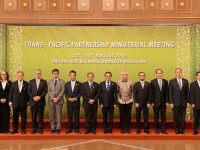Canada’s net neutrality rules, which require Internet providers to disclose how they manage their networks and to treat content in an equal manner, were established in 2009. The policy is administered by the Canadian Radio-television and Telecommunications Commission (CRTC), which releases quarterly reports on the number of complaints it receives and whether any have been escalated to enforcement actions.
At first glance, the reports on the so-called Internet traffic management guidelines suggest that net neutrality violations are very rare. My weekly technology law column (Toronto Star version, homepage version) notes that last year, there were typically a few complaints each month and all were quickly resolved. The CRTC does not disclose the specific targets or subject matter of the complaints.
Yet according to documents obtained under the Access to Information Act, the complaints and their resolution give cause for concern. There are generally two types of complaints: those involving throttling technologies that limit speeds to render real-time services unusable or treat similar content in different ways, and quality-of-service issues that seem like throttling to the customer.











